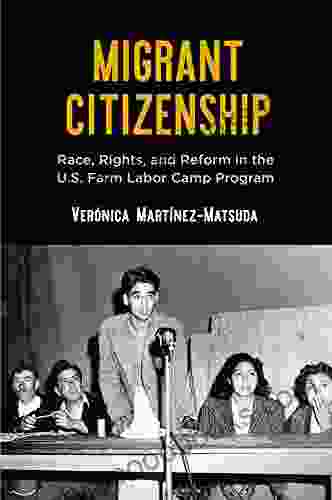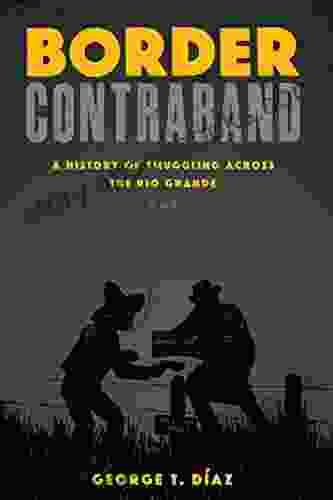Race, Rights, and Reform in the Farm Labor Camp Program: Politics and Culture in Flux

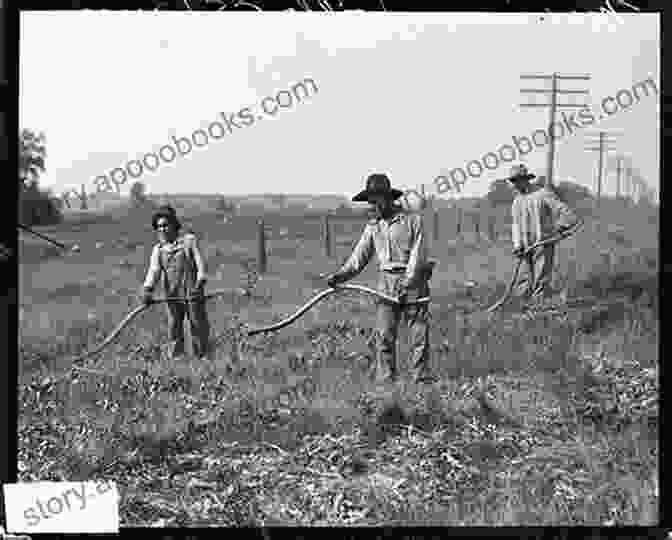
5 out of 5
| Language | : | English |
| File size | : | 3500 KB |
| Text-to-Speech | : | Enabled |
| Screen Reader | : | Supported |
| Enhanced typesetting | : | Enabled |
| Word Wise | : | Enabled |
| Print length | : | 346 pages |
In the annals of American history, the Farm Labor Camp Program stands as a poignant crucible where issues of race, rights, and reform converged in a tumultuous symphony. This article embarks on an in-depth exploration of this pivotal program, delving into its historical context, political machinations, cultural impact, and the enduring legacy it left on the struggle for social justice.
Historical Underpinnings: A Nation's Call to Harvest
The genesis of the Farm Labor Camp Program can be traced to the exigencies of World War II. With the nation's able-bodied workforce deployed to the battlefields, a burgeoning labor shortage threatened to cripple the agricultural industry, which served as the lifeblood of the war effort. In response to this crisis, the U.S. Department of Agriculture (USDA) initiated the Emergency Farm Labor Program in 1943.
This program, later renamed the Farm Labor Camp Program, was designed to streamline the recruitment, relocation, and housing of migrant workers, primarily from Mexico and other parts of the Americas. The program established a network of temporary labor camps scattered across the country, providing basic accommodations for these essential workers.
Politics of Exclusion: Race-Based Disparities and Exploitation
While the Farm Labor Camp Program aimed to address the labor shortage, it inadvertently perpetuated systemic racial disparities and exploitation. The program's inception coincided with a period of heightened anti-Mexican sentiment in the United States, fueled by discriminatory policies such as the Bracero Program, which restricted the rights of Mexican workers.
These prejudices seeped into the administration of the Farm Labor Camp Program, leading to discriminatory practices against Mexican migrant workers. They were often segregated into substandard housing and subjected to lower wages and harsher working conditions compared to their white counterparts. The program, intended to serve as a safety net, became a breeding ground for injustices and a symbol of the nation's racial divide.
Voices of Resistance: Labor Rights and Activism
Despite the systemic challenges, migrant workers and their allies refused to be silenced. Inspired by the burgeoning civil rights movement, they organized and fought for their basic rights and dignity. Unions such as the National Farm Workers Association, led by iconic figures like Cesar Chavez, played a pivotal role in mobilizing migrant workers and advocating for improved labor conditions.
Through strikes, protests, and relentless activism, these organizations brought the plight of migrant workers to the forefront of national consciousness. Their efforts led to significant legislative reforms, including the inclusion of migrant workers under the National Labor Relations Act, granting them the right to unionize and bargain collectively.
Cultural Crossroads: The Camp as Community and Contention
Beyond the political and economic arenas, the Farm Labor Camp Program had a profound impact on the cultural landscape of the United States. These camps, often isolated and transient, became melting pots of diverse cultures, where traditions, languages, and experiences intertwined.
However, these cultural exchanges were not always harmonious. The presence of migrant workers in rural communities often triggered resistance and prejudice. Clashes between local residents and migrant workers over issues such as housing, education, and healthcare highlighted the underlying racial tensions that permeated American society.
Legacy of Labor, Rights, and Resilience
The Farm Labor Camp Program officially ended in 1964, but its legacy continues to resonate today. The program's flawed implementation exposed the deep-seated racial biases and labor injustices that persisted in American society. It served as a catalyst for transformative social movements that fought for the rights of migrant workers and the recognition of their essential contributions to the nation's economy and culture.
The legacy of the Farm Labor Camp Program is a complex tapestry woven with threads of struggle, resilience, and the indomitable spirit of those who toiled in the fields. Their fight for rights and dignity has left an enduring mark on American history, reminding us of the ongoing need to address racial inequities and ensure that justice prevails for all.
: A Journey Towards Justice
The Farm Labor Camp Program was a microcosm of the racial, political, and cultural dynamics that have shaped American history. It was a flawed program, marred by discrimination and exploitation. Yet, it also ignited a movement that fought for the rights of migrant workers and laid the groundwork for future reforms.
Today, the legacy of the program serves as a constant reminder of the challenges and triumphs in the struggle for social justice. It challenges us to confront the enduring issues of race, labor rights, and the plight of migrant workers, and to work towards a more equitable and harmonious society where all workers are treated with dignity and respect.
Delve Deeper into the Intricacies of the Farm Labor Camp Program
To further explore the fascinating history and impact of this pivotal program, I highly recommend the following resources:
- Race Rights And Reform In The Farm Labor Camp Program Politics And Culture In
- In the Fields of the North: Mexican Farm Labor in the Midwest, 1942-1960
- Harvest of Dissent: The UFW and the Struggle for Farm Workers' Rights
5 out of 5
| Language | : | English |
| File size | : | 3500 KB |
| Text-to-Speech | : | Enabled |
| Screen Reader | : | Supported |
| Enhanced typesetting | : | Enabled |
| Word Wise | : | Enabled |
| Print length | : | 346 pages |
Do you want to contribute by writing guest posts on this blog?
Please contact us and send us a resume of previous articles that you have written.
 Book
Book Novel
Novel Page
Page Chapter
Chapter Text
Text Story
Story Genre
Genre Reader
Reader Library
Library Paperback
Paperback E-book
E-book Magazine
Magazine Newspaper
Newspaper Paragraph
Paragraph Sentence
Sentence Bookmark
Bookmark Shelf
Shelf Glossary
Glossary Bibliography
Bibliography Foreword
Foreword Preface
Preface Synopsis
Synopsis Annotation
Annotation Footnote
Footnote Manuscript
Manuscript Scroll
Scroll Codex
Codex Tome
Tome Bestseller
Bestseller Classics
Classics Library card
Library card Narrative
Narrative Biography
Biography Autobiography
Autobiography Memoir
Memoir Reference
Reference Encyclopedia
Encyclopedia Mishuana Goeman
Mishuana Goeman Tyrell Madison
Tyrell Madison Maci Bookout
Maci Bookout Tony Wood
Tony Wood Patricia Falvey
Patricia Falvey Pam Halter
Pam Halter R M Olson
R M Olson Pramod Kumar Pisharady
Pramod Kumar Pisharady S L Turner
S L Turner H J Marshall
H J Marshall Sarah R Burns
Sarah R Burns Robert Silverberg
Robert Silverberg Nils Petter Gleditsch
Nils Petter Gleditsch Owen D Hill
Owen D Hill William Westney
William Westney Michael Connelly
Michael Connelly Mina Irfan
Mina Irfan Raymond Williams
Raymond Williams Sarah Maria Griffin
Sarah Maria Griffin Seymour Fink
Seymour Fink
Light bulbAdvertise smarter! Our strategic ad space ensures maximum exposure. Reserve your spot today!

 Mario BenedettiBetter Than Average: Unleash Your Inner Potential and Achieve Extraordinary...
Mario BenedettiBetter Than Average: Unleash Your Inner Potential and Achieve Extraordinary...
 Corbin PowellShalom Aleichem Part Piano Sheet Music Collection: A Symphony of Jewish Songs...
Corbin PowellShalom Aleichem Part Piano Sheet Music Collection: A Symphony of Jewish Songs...
 Jayson PowellThe Gift Of Charity Apalachicola Pearl: A Literary Gem That Captivates Hearts
Jayson PowellThe Gift Of Charity Apalachicola Pearl: A Literary Gem That Captivates Hearts Avery SimmonsFollow ·2.9k
Avery SimmonsFollow ·2.9k Glen PowellFollow ·6.5k
Glen PowellFollow ·6.5k Douglas PowellFollow ·9.7k
Douglas PowellFollow ·9.7k Gabriel MistralFollow ·9.9k
Gabriel MistralFollow ·9.9k Ashton ReedFollow ·15.3k
Ashton ReedFollow ·15.3k Quincy WardFollow ·13.3k
Quincy WardFollow ·13.3k Henry Wadsworth LongfellowFollow ·14.1k
Henry Wadsworth LongfellowFollow ·14.1k Harrison BlairFollow ·18.7k
Harrison BlairFollow ·18.7k

 Jorge Luis Borges
Jorge Luis BorgesUnlock Your Inner Musician: The Ultimate Guide to...
Embark on a Musical...
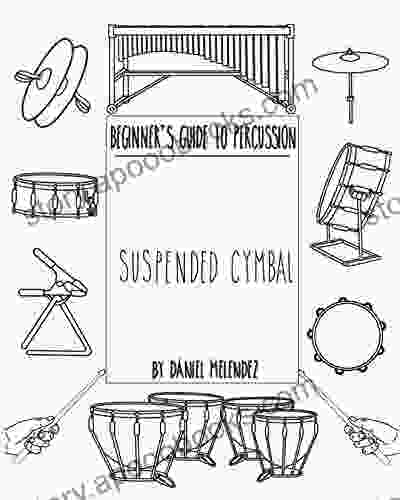
 Carlos Drummond
Carlos DrummondQuick Reference Guide To Percussion Instruments And How...
Unleash your inner rhythm with...

 Roberto Bolaño
Roberto BolañoUnlock Your Guitar Potential: The Ultimate Guitar Mastery...
Are you ready...

 Fred Foster
Fred FosterLooking for Lady Dee: A Punk Rock Mystery
By [Author's Name] Looking for Lady Dee is...

 Jacques Bell
Jacques BellJourney into the Mystical Realm of "Heaven Polly Alice...
In the tapestry of literature, where...
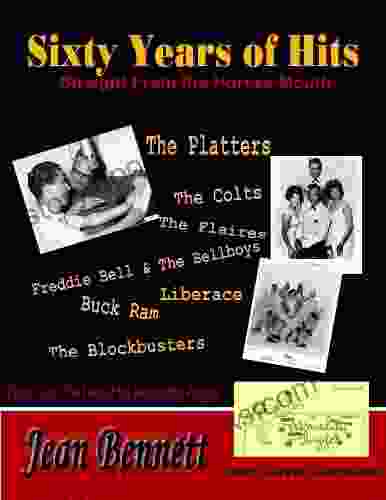
 Julio Ramón Ribeyro
Julio Ramón RibeyroSixty Years of Hits: A Musical Journey Through Time
Music has the...
5 out of 5
| Language | : | English |
| File size | : | 3500 KB |
| Text-to-Speech | : | Enabled |
| Screen Reader | : | Supported |
| Enhanced typesetting | : | Enabled |
| Word Wise | : | Enabled |
| Print length | : | 346 pages |


